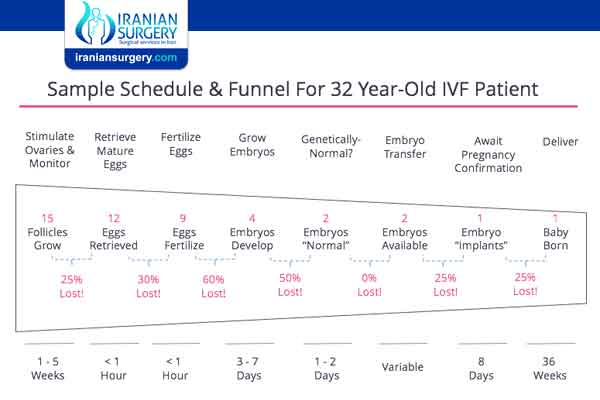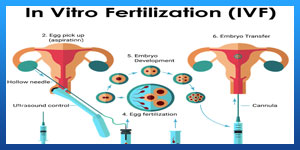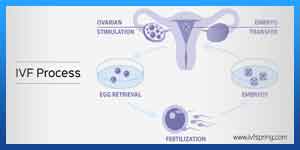IVF Process Timeline

How long is IVF process from start to finish?
IVF is not a single treatment but a series of procedures. An average IVF cycle takes about 6 to 8 weeks from consultation to transfer.
Read more about : IVF Process Start to Finish
Read more about : If not pregnant after ivf when does period start
How long does IVF take?
Week 1: first visits and consultations
Sometimes the biggest hurdle is just getting yourself into the office. After all the dreaming, discussions, worrying, thinking and planning, you are as ready as you will ever be. Seeking fertility treatment is a courageous step, and it usually comes with hundreds of questions. This first stage is your opportunity to start finding some real answers.
. Initial consultation: In this first meeting, the clinic will obtain an extensive medical history from you and your partner, and try to answer any questions or concerns you might have at this stage. Do not be afraid to come with a long list; it is vital that you feel well-informed and comfortable before you commit to treatment.
. Clinical coordinator consultation: At this appointment, we will review your diagnosis and the details of your desired treatment plan. This is where much of the nitty gritty planning is done. You will learn how to self-administer the medications used in an IVF cycle, and schedule key procedures.
Read more about : Ivf cost calculator
Read more about : Can i bend down after embryo transfer?
Read more about : Can you have twins with ICSI?
Week 2-4: preparation begins
This is where everything really starts.
. Pretreatment preparation for IVF: Comprehensive lab tests give a clearer picture of your fertility, so that your fertility experts can offer you an individualized IVF protocol. Common pre-IVF testing includes:
. A blood panel
. Ultrasounds
. Infectious disease screening
. Uterine evaluation
. Male fertility testing, including a sperm analysis
. Start birth control pills: The next step is to regulate your menstrual cycle and prepare your ovaries. You can expect to take birth control pills for 2 to 4 weeks after testing and diagnosis, depending on the length of your cycle.
 Read more about : Is the IVF procedure painful?
Read more about : Is the IVF procedure painful?
Week 5: medication and monitoring
Once you come off of the birth control pill, you will begin a process known as Controlled Ovarian Hyperstimulation (COH). At the clinic you will have an ultrasound to evaluate the uterus and ovaries, and once you get the all clear you can start. There are two main parts to the COH process.
. Take fertility medications (for about two weeks): Oral fertility medications like Clomid and/or injectable follicle stimulation hormones (Follistim and Gonal-F) are used to stimulate the follicles in your ovaries to mature more eggs than they typically would in a normal cycle. The goal is to produce at least 4 eggs with the use of fertility medication.
. Monitoring visits (during the fertility medication phase): Ultrasounds and blood tests are used during this time to keep a close eye on the development of your follicles and eggs. This is the most time-consuming part of the IVF process, requiring an average 5-7 office visits.
Week 7: triggering, egg retrieval, and fertilization
After about 10-12 days of fertility medication, once monitoring shows that your follicles have grown to an appropriate size, it is time to trigger the final maturation of the eggs with HCG and schedule the ultrasound egg retrieval 36 hours later.
Read more about : Ivf process start to finish
. Egg retrieval: This is a day procedure performed in the clinic under sedation. There is minimal risk, but you will want to take the day off work and arrange for someone to pick you up. If you are going through IVF with a partner who will be providing a semen specimen, it will be collected on the same day as your egg retrieval or the sperm could be frozen before.
. Egg and sperm are combined in the lab: If all goes well, fertilization occurs and embryos are created. There are several options that can be used at this stage to try to increase the chances of a successful pregnancy.
. Intracytoplasmic sperm injection (ICSI) is a good option when male infertility is a factor. In this procedure a single healthy sperm is injected directly into an egg.
. Assisted hatching is a procedure where a tiny hole is made in an embryo’s outer membrane (the zona pellucida) to try to increase the rate of implantation after transfer.

. Preimplantation genetic screening (PGS) or diagnosis (PGD) can help to ensure that only healthy embryos are transferred. As genetic abnormality is a leading cause of miscarriage, this testing is often helpful in cases of recurrent pregnancy loss.
. Within 3-6 days after fertilization, embryos are evaluated for transfer: Daily monitoring helps experts decide which embryos have the best chance of surviving transfer, and IVF Lab Daily Reports keep you informed of their progress.
. Embryo or blastocyst transfer: Approximately 3 days after fertilization, embryos are ready for transfer, but some patients prefer to wait a few days until they have reached the blastocyst stage (generally 5 days after fertilization). The embryo or blastocyst is instilled into the uterus via a thin, flexible plastic tube, which is gently passed through the opening in the cervix leading to the interior of the uterus. You will not need sedation for this procedure. It is generally painless but some women may experience mild cramping. You can watch the transfer as it happens with ultrasound technology.
Read more about : Egg donation in iran
After IVF
After the transfer, you will take a progesterone supplement to help support the uterine lining and encourage implantation.
. Pregnancy test #1: Approximately 12 days after the embryo/blastocyst transfer, you will take your first pregnancy test in the clinic. If it is positive, we will schedule you for Pregnancy Test #2.
. Pregnancy test #2: This repeat test is done within one week of the first positive test. If it is positive, we will schedule you for an ultrasound after 2-3 weeks, and then you can transfer your care to an OB GYN.



4 Comments
hello iranian surgery
I’m a 33 year old woman looking to get IVF treatment and I was wondering which clinics are the best in Iran for Infertility treatments and how can I get in touch with them?
The best clinics for Infertility treatments(IVF,surrogacy,egg donation …) in Iran are located at Tehran City, Shiraz City and Mashhad.
you can contact our consultants via what’s app on this number +989019290946
send them your medical Informstion and they will coardinate to get you the best clinic for your treatment.
Hello doctor. after 3 miscarriage my doctor suggested me to do donor egg. I am still not sure about this and I have many doubts. I dont want anyone to know about it and i am afraid my family recognize I used some other woman egg.
please tell what are my options?
Hello Mira
Regarding your concerns about IVF with donor egg, I can assure you that all your information will be confidential. Also the donor is screened to be not only mentally and physically healthy but also as similar as possible to you by appearance and blood type.
the screening is done by a professional medical team of geneticists and gynecologists.
And the good news is, you might be still able to use your own egg for IVF after treatment. So please contact our consultant team via Whatsapp number +98 922 176 2312 to find out about the best options according to your medical documents .